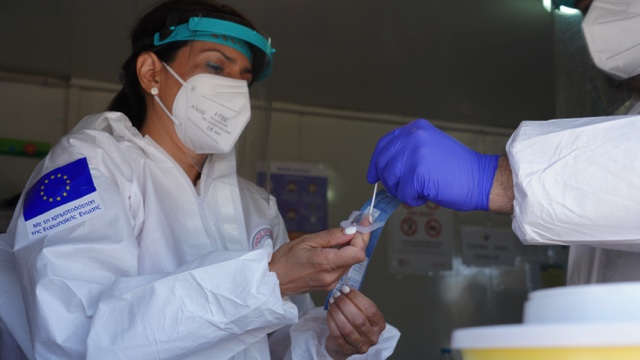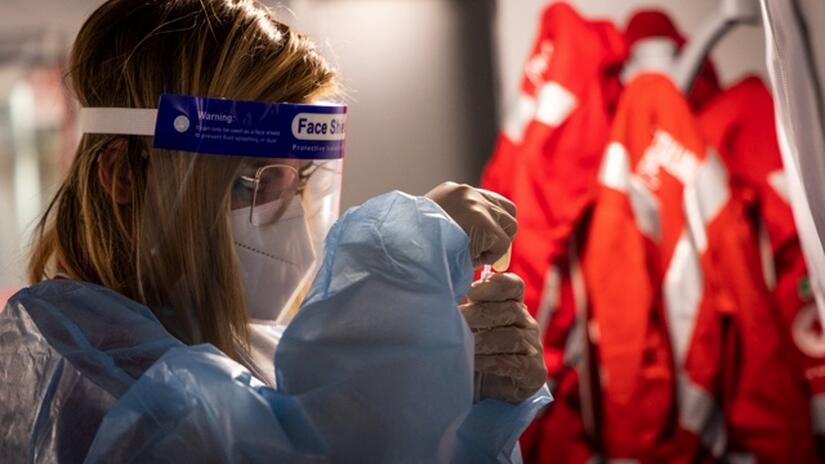Since the beginning of the pandemic, National Red Cross and Red Crescent Societies in Europe have been supporting their countries’ health authorities in the fight against COVID-19 through a wide range of services to help curb the spread of the virus and ensure nobody is left behind.
In Austria, Germany, Greece, Italy, Malta, Portugal and Spain, National Societies expanded mobile testing capacities thanks to a EUR 35.5 million partnership between the European Commission and the International Federation of Red Cross and Red Crescent Societies (IFRC). The European Commission financed this project as part of its Emergency Support Instrument to boost testing capacities and provide immediate support to Member States. The project’s success – it trained and equipped more testing teams as initially targeted – shows the value of a coordinated response to the coronavirus pandemic amongst European Red Cross National Societies.

From September 2020 to September 2021, this initiative has been a vital part of the COVID-19 response, making RT-PCR and rapid antigen testing available for more people. Local Red Cross teams performed more than 1.2 million tests within the scope of the project. Moreover, 6,800 Red Cross staff and volunteers were trained for testing and 1,428 mobile teams were set up and equipped to provide COVID-19 testing services.
The outreach role of National Red Cross Societies and their capacity to reach vulnerable groups has been particularly important in countries like Greece and Malta, where the Red Cross provided health and care services to migrants and refugees. Set up in camps and remote areas, these testing facilities aimed to help contain the spread of COVID-19 where access to health services was often limited.
“Testing is essential to help contain the pandemic. With all its initial targets surpassed, the project has proven that National Societies can play a key role in supporting national health systems in Europe and has opened new possibilities for further collaboration with health authorities,” said IFRC project coordinator Francisco Fong.
Local Red Cross teams also set up testing stations at transport hubs where a large number of people pass by every day. In Italy, staff and volunteers offered rapid antigen tests free of charge at 10 train stations across the country for travellers and commuters. In countries like Austria, Germany, Portugal and Spain, the Red Cross mobile testing teams have been invaluable in reaching out to marginalised communities in the countryside, where many people don’t have health insurance.
As coronavirus cases and deaths continue to surge across Europe, collective efforts are more important than ever to disrupt transmission chains and save lives. The partnership between the European Commission and the Red Cross Red Crescent Movement has been instrumental in providing support to health authorities and curbing the spread of COVID-19.

